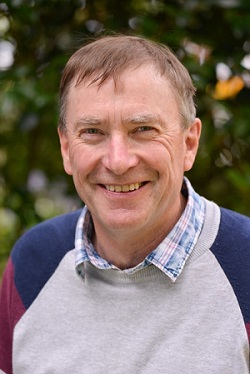Two general practitioners from Dunedin have been awarded Community Service Medals by The Royal New Zealand College of General Practitioners.
The Community Service Medal recognises members of the College who have made an outstanding contribution to general practice through work, particularly education, in their communities.
College President Dr Samantha Murton says, “The impact of the knowledge these GPs pass on to colleagues, registrars, and medical students is invaluable.
“Their passion for teaching and caring for those within their community shows a true dedication to our profession.”
The GPs who received this award, are:
 Dr Hamish Wilson
Dr Hamish Wilson
Dr Wilson has been involved in making significant changes to undergraduate medical education at the University of Otago where he is an Associate Professor in the Department of General Practice and Rural Health. These changes include implementing a ‘care in the community’ programme, developing a mentoring programme, and summarising complex medical text into plain English.
He has created guidelines to highlight the use of reflective practice as a method for preventing burnout. This is a method he has learnt through his involvement with the Balint Society, whose approach is focused on clinicians understanding the meaning of a patient’s behaviour and symptoms and getting to know their patients on an individual level.
In 2013 Dr Wilson co-authored a book, ‘Being a Doctor: Understanding Medical Practice’ that addresses the gap between medical theory and the realities of clinical practice.
Dr Susie Lawless
Dr Lawless has worked as a GP at Amity Health Centre in Roslyn for two decades. She played a key role in the centre becoming one of the first practices in Dunedin to achieve accreditation from the College of GPs and become a recognised training practice for registrars.
She was part of a team who facilitated Amity Health Centre becoming one of the first four general practices in the country to adopt the Health Care Homes model, which promotes access to urgent and unplanned care, and provides more preventive care and better support for patients who have complex health needs.
Dr Lawless was at the forefront of ensuring that her practice was part of the refugee support programme when Syrian refugees were resettled in Dunedin in 2018.
Dr Lawless coordinates a programme to facilitate access to health care for prisoners following their re-entry into the community and has served on the Southern Child Youth Mortality Review Group and the Southern District Health Board Clinical Leadership Group.